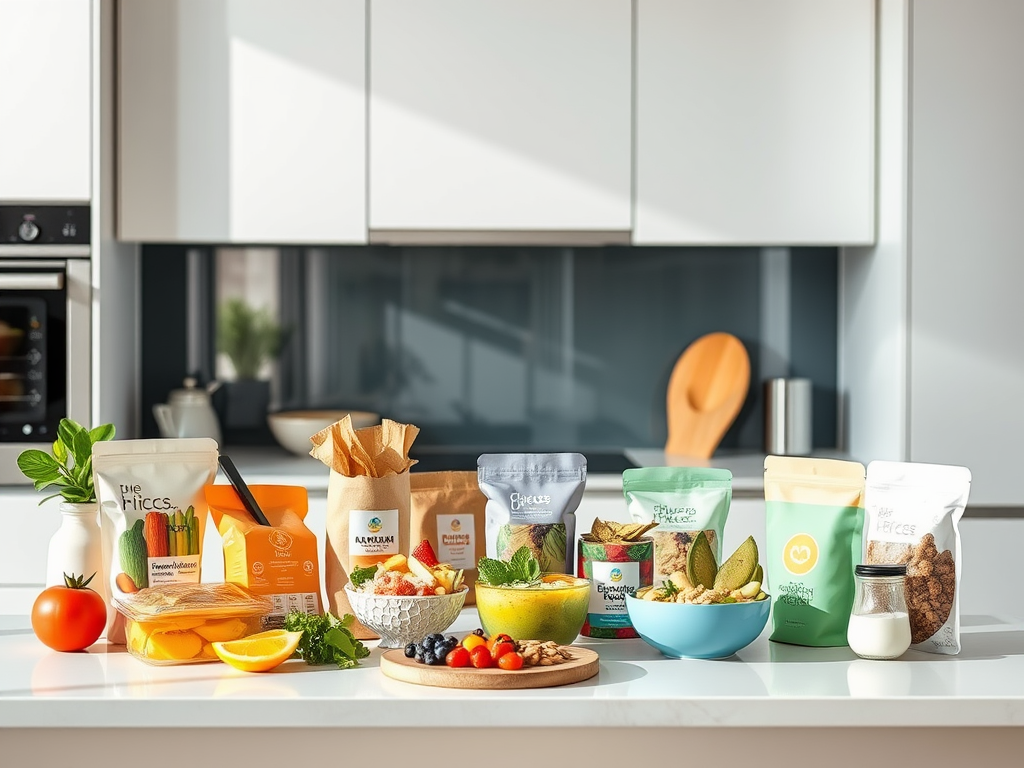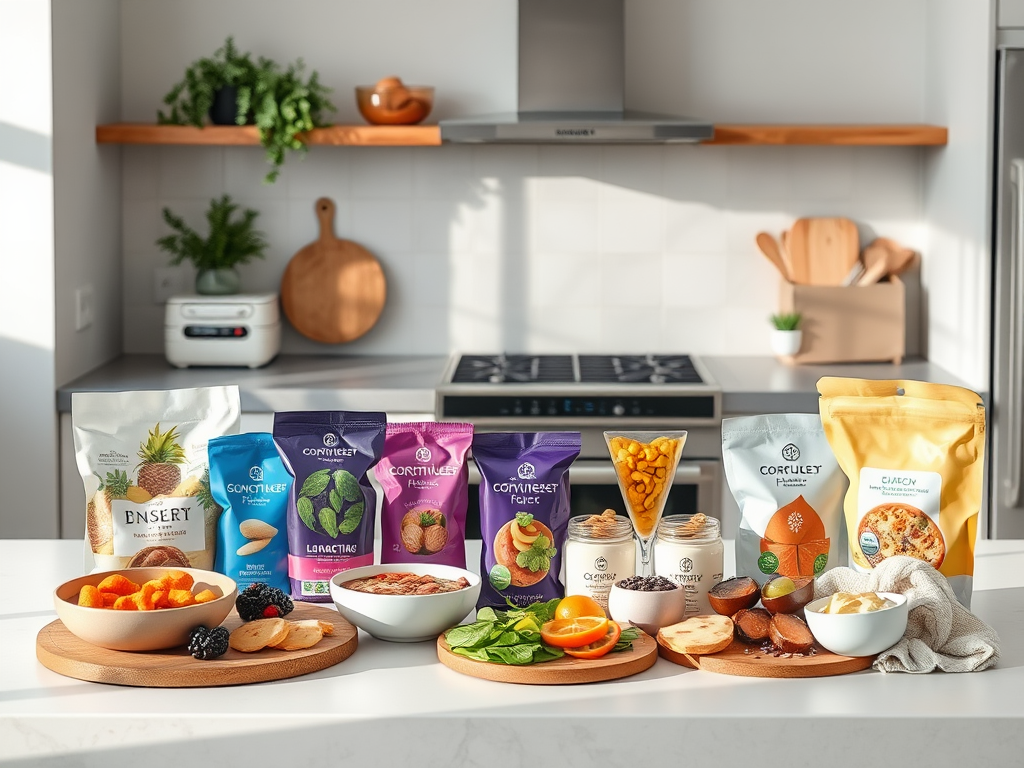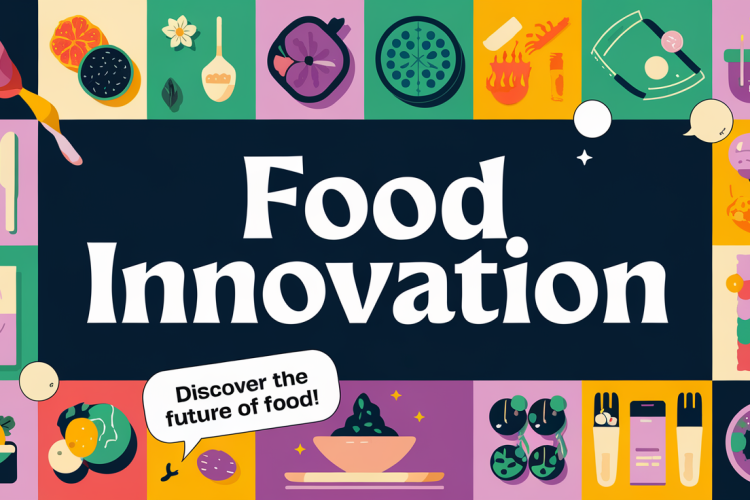Food innovation is transforming the way manufacturers meet consumer demands, driven by advances in technology and shifting consumer preferences. The food industry is witnessing a significant shift, with companies leveraging artificial intelligence (AI) and data analytics to anticipate and respond to consumer needs. This transformation is evident in the rise of plant-based alternatives, sustainable packaging, and global flavors. As consumers increasingly prioritize health, sustainability, and quality, food manufacturers are innovating to stay ahead of the curve.
Leveraging AI to Stay Ahead of Consumer Trends
Food manufacturers are embracing AI to stay ahead of consumer trends. Companies like Conagra are using AI to process global data from social media, retail, and consumer feedback to predict food preferences and streamline product launches. According to Conagra, “AI allows us to monitor emerging trends at a global scale and respond more nimbly to consumer demand.” This approach enables food manufacturers to be more agile and responsive to changing consumer preferences.

Some key benefits of using AI in food manufacturing include:
* Improved forecasting and demand planning
* Enhanced product development and innovation
* Increased efficiency in production and supply chain management
By leveraging AI, food manufacturers can gain a competitive edge in the market and better meet the evolving needs of consumers. For instance, companies can use AI to identify emerging trends and preferences, such as the growing demand for plant-based products. If you’re a food entrepreneur looking to innovate, you can submit your dessert recipe to be featured on our site and gain exposure.
The Rise of Plant-Based and Alternative Proteins
The global plant-based food market is expanding rapidly, with vegetarian options outpacing vegan products by three times in market size. Alternative proteins, including plant-based and lab-grown options, are projected to reach a $200 billion market by 2029 (Board of Innovation report). Brands like Perfect Day, Remilk, and Better Dairy are leading the charge in precision fermentation and alternative proteins. These innovations are not only driving growth in the plant-based sector but also contributing to a more sustainable food system.
Some notable examples of companies innovating in this space include:
* Perfect Day: dairy alternatives
* PrimeRoots: meat alternatives
* Necton: microalgae-based products
* Oobli: zero-calorie sweeteners
These companies are pushing the boundaries of food innovation and providing consumers with more sustainable and healthier options. As the demand for plant-based products continues to grow, food manufacturers are responding by developing new and innovative products. You can explore more about the latest trends in food innovation by visiting our business directory and discovering local dessert shops that are innovating in this space.
Health, Sustainability, and Ethical Innovation in Food Production
Consumer demand for healthier and more sustainable products is driving innovation in ingredients, packaging, and waste reduction. Companies are adopting zero-waste initiatives and exploring sustainable packaging options to meet ethical consumer expectations. Ethical considerations such as ingredient sourcing and environmental impact are shaping product development and marketing strategies. For example, companies are using sustainable ingredients and reducing waste in their production processes. This shift is not only beneficial for the environment but also enhances the brand reputation and appeal to consumers who prioritize sustainability.
Some key areas of focus for companies include:
* Sustainable packaging
* Zero-waste initiatives
* Ethical sourcing and ingredient transparency
By prioritizing health, sustainability, and ethics, food manufacturers can create products that not only meet consumer demands but also contribute to a more sustainable food system. As consumers become more environmentally conscious, companies that prioritize sustainability are likely to gain a competitive edge. For more information on sustainable practices, you can explore our article on sustainable fashion waste reduction, which highlights the importance of reducing waste across industries.

The Future of Food Innovation: Meeting Evolving Demands
Rapidly changing consumer preferences are pushing food manufacturers to innovate across health, sustainability, and technology. AI, plant-based alternatives, and sustainability initiatives are key drivers of this transformation. As consumers continue to prioritize quality, transparency, and international flavor profiles, food manufacturers must stay agile and responsive to meet these evolving demands. By embracing innovation and sustainability, food manufacturers can not only meet consumer demands but also contribute to a more sustainable food system.
For food entrepreneurs and businesses looking to stay ahead of the curve, it’s essential to stay informed about the latest trends and innovations in the industry. You can explore more about the latest developments in food manufacturing by visiting our article on Hershey’s Lesserevil snack acquisition or our guide to cold coffee recipes. Additionally, you can learn more about the impact of tariffs on the US baking industry by visiting our article on US baking industry tariff threat. You can also discover more about seasonal cake programs by visiting our article on Dawn Foods seasonal cake program.



